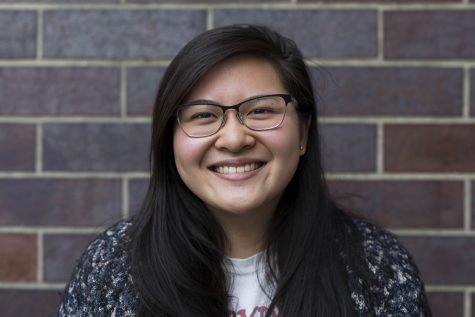Banning the Box to Counter an Unfair Justice System
October 3, 2016
A little bit over a week ago, news broke that a male student accused of rape while attending at a different university is taking classes at NYU. After being suspended from Cornell University, Wolfgang Ballinger has been embroiled in several back-and-forth allegations of sexual assault. While Ballinger may only be taking online courses this semester, the news of his presence at NYU has still caused major anxiety on campus. NYU students remarked that the enrollment of men with histories of sexual abuse is worrying for a campus that is demographically dominated by women. Subsequently, questions regarding the recent Ban the Box victory have emerged, with some voicing concern that banning the box could possibly create vulnerabilities for the student body by allowing the enrollment of violent individuals.
However, this one incident shouldn’t discount the hard work done by the Incarceration to Education Coalition to rid the application process of an unfair disqualifier based on faulty logic. It’s vital to remember that there is a significant difference in power distribution between individuals in this country, meaning that privileges of class, race, gender and sexuality produce incredibly different sentences. For example, a person with few financial and legal resources could receive jail time for shoplifting vegetables to feed their family. An act like this would be considered equal to a violent crime in the eyes of any university application that hasn’t adopted more nuanced measures, like those embraced by NYU in the past. Surely many members of the student body — at NYU, or any other university — are guilty of underage drinking or possession of a controlled substance, both crimes that could carry with them the threat of possible jail time.
These instances of petty crime disproportionately affect people of color and members of underprivileged communities and are not even in the same realm as a genuine violent crime — especially one committed by a privileged student. Wealthier students — someone in the vein of Ballinger or the infamous Stanford rapist Brock Turner — generally have ample opportunities to fight off charges of violent sexual assault by paying for a better legal defense team or having public relations managed by professionals so their character stays intact. They have the support of their parents and family wealth to fall back on and eager defenders from their communities who often publically swear that these students were “good kids” and deserve the leniency of the law. Poor prospective students, especially ones with minor criminal backgrounds, are less likely to have this safety net.
NYU students should not feel that we need to reevaluate the Ban the Box movement. At its heart, the movement’s intentions were, and still are, in the right. Those wrongfully victimized and excessively punished by the justice system deserve access to higher education and the opportunity to individual reform.
Opinions expressed on the editorial pages are not necessarily those of WSN, and our publication of opinions is not an endorsement of them.
A version of this article appeared in the Monday, October 3rd print edition. Email Emily Fong at [email protected].


























































































































































Sara • Nov 1, 2016 at 8:48 am
This is seriously unintelligible writing. We can’t figure out whether you want to ban the box or not, think this student should be allowed to take classes or not. And he has been charged, not “embroiled in back in forth allegations” as if he has been simply maligned.
Excuse me • Oct 10, 2016 at 11:49 am
there is a difference between a convicted criminal, and someone who is undergoing an investigation.
A baseball lover • Oct 5, 2016 at 10:03 pm
so we should let CRIMINALS just walk around?????!!!!!!!!!!!!!!!!!!!!!!! They are CRIMINALS. I’ve never done anything in my entire life!!!!!!!!!!!!!!!
Youths today don’t understand the consequences. You make bad choices and you DONT GO TO COLLEGE.
RAWR RAWR IM ANGRY
#trump2k16